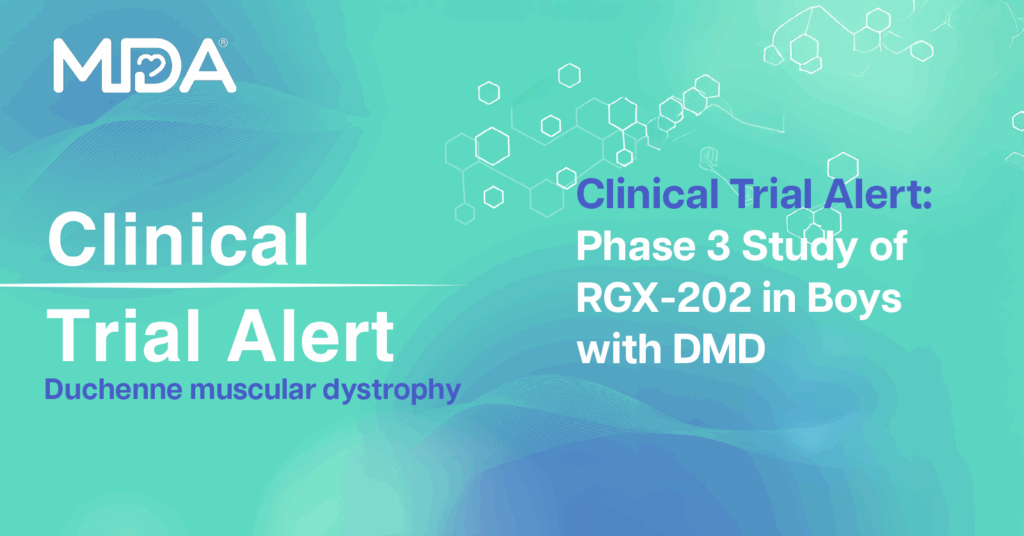
Are Vaccines Safe
By MDA Staff | Thursday, March 4, 2021
Vaccines are big news these days, but what exactly are they?
Typically given as a shot, vaccines are an important tool to help prevent people from getting sick with or dying from preventable diseases. Different types of vaccines work in different ways, but they all cause you to develop special cells, or antibodies, that help your body fight a specific disease.
Many vaccines work by introducing a small amount of a weakened or inactive pathogen into the body. New types of vaccines, like the COVID-19 vaccines that are in use and being developed, contain pieces of genetic material or proteins from infectious organisms. Whatever the method, the result is that the immune system develops antibodies to that disease. Once you have these antibodies, if you’re exposed to the disease, your body will recognize it and have a head start on fighting it off.
Vaccines have been around since the 18th century; however, it wasn’t until the 1940s that scientific knowledge and production practices advanced enough to allow large-scale inoculation efforts. Since that time, vaccination has helped transform what were once deadly or very harmful diseases into much milder cases or, in the case of smallpox, eliminated disease entirely.
Today, dangerous childhood diseases that were once common, such as polio and mumps, are rare. But even though chances are low that you or your child will be exposed to these diseases, you don’t want to be lacking the protection of a vaccine if you ever are.
It’s important to remember that vaccines do not give you the disease they are designed to prevent. Sometimes, you might have symptoms, such as fever, after a vaccination. This is normal and is a sign that your body is building immunity.
In studies, vaccines have been shown to be safe and effective for individuals with neuromuscular disease. In fact, using vaccines to prevent diseases that cause respiratory infections is especially important for those who experience respiratory or cardiovascular complications because of neuromuscular disease.
While most vaccines recommended by the Centers for Disease Control and Prevention (CDC) have established safety records, COVID-19 vaccines are new, and a lot of people have questions about them.
What are the COVID-19 vaccines?
As of March 2020, the US Food and Drug Administration (FDA) has issued Emergency Use Authorization for three vaccines for the prevention of COVID-19 in older teens and adults. (Learn more about available COVID-19 vaccines.)
The first two vaccines to be authorized, produced by Moderna and Pfizer-BioNTech, are messenger RNA (mRNA) vaccines. They work by carrying instructions to our cells that teach them how to make a protein that triggers an immune response to the SARS-CoV-2 virus.
The third vaccine, produced by Johnson & Johnson, uses a type of virus called adenovirus, which has been modified to be harmless, to deliver a piece of DNA from the SARS-CoV-2 virus to cells. This triggers an immune response against it.
Although these vaccines contain genetic materials, those materials do not get added to our DNA or change our genetics.
The Moderna and Pfizer-BioNTech vaccines, which consist of two shots given three to four weeks apart, have been shown to be 94% to 95% effective at preventing symptoms of COVID-19. Johnson & Johnson’s one-dose vaccine has been shown to be 66% effective.
What do those effectiveness rates mean? “People can still get sick with COVID-19 after receiving the vaccine,” says Oren Kupfer, MD, a pediatric pulmonologist at Children’s Hospital Colorado and associate professor of pediatrics, pulmonary, and sleep medicine at the University of Colorado School of Medicine. “However, the current data suggests that severe illness is far less likely in those who received a full course of the vaccine than in those who are unvaccinated.”
It is not yet known whether people who are vaccinated and still become infected with COVID-19 can be contagious. “Vaccinated people may be asymptomatically infected and could pass the virus to others,” Dr. Kupfer warns. “We advise that those who are vaccinated continue all safety measures, including wearing a mask, practicing social distancing, and washing hands frequently.”
Are COVID-19 vaccines safe for individuals with neuromuscular disease?
Currently, there are no specific concerns regarding the safety of COVID-19 vaccination for individuals with neuromuscular disease.
According to a survey conducted by the National Organization for Rare Diseases, the vaccine trials “had clear and compelling evidence that they are safe and effective,” said Peter Marks, director of the FDA’s Center for Biologics and Research Center, during a recent webinar on the topic cosponsored by MDA, the ALS Association, and the Cystic Fibrosis Foundation. Based on current data, “the FDA does not feel concerned that the COVID-19 vaccines will cause any harm to those with a rare disease, including those with a compromised immune system,” Peter said.
In fact, many individuals with neuromuscular disease are considered at high risk for developing serious complications when they have COVID-19, mostly due to respiratory issues. “While individuals with neuromuscular disease have lung tissue that is typical, the muscles at the base of the chest and around the ribcage may be weak because of neuromuscular disease,” says Crystal Proud, MD, a pediatric neurologist affiliated with Children’s Hospital of The King’s Daughters in Norfolk, Va. “That can impair the ability to cough and clear secretions and to breathe comfortably.”
Because of this, MDA and other experts strongly recommend that people with neuromuscular disease get the COVID-19 vaccine. “Individuals with neuromuscular disease who are old enough for the currently approved vaccines should receive them once they are made available,” Dr. Kupfer says. “Side effects of headache, muscle aches, fatigue, and fever occur but are temporary. The risk of getting COVID-19 for someone with chronic medical conditions is far more grave than temporary vaccine reactions.”
What other vaccines are recommended for people with neuromuscular disease?
The CDC has developed a chart of recommended immunizations for 17 preventable diseases, many administered during childhood and others during adulthood. Dr. Kupfer and Dr. Proud urge individuals with neuromuscular disease to follow the CDC’s recommended schedule, with a few exceptions:
- Two doses of measles, mumps, rubella (MMR) and varicella vaccines should be given before beginning immunosuppressive therapy.
- Individuals taking immunosuppressive therapy, including high-dose steroids, should not receive live-virus vaccines, such as the influenza (flu) nasal spray.
- Almost all individuals with neuromuscular disease should get a flu vaccine every year and a single dose of an additional pneumococcal vaccination called PPSV23.
Studies have found that individuals with neuromuscular disease may not gain as much immunity from vaccinations, or their immunity may not last as long as other populations. To protect them, it’s important for family member and caregivers to be vaccinated appropriately.
Why should I get vaccinated?
Vaccination is important for protecting the health and well-being of everyone — those with neuromuscular disease and those without.
“All people should be vaccinated to protect themselves and to decrease the likelihood of spreading disease to those who cannot be immunized themselves,” Dr. Kupfer says.
As with all decisions about your health, speak with your healthcare team if you have any questions or concerns about the COVID-19 vaccine or others.
Cheryl Alkon is a freelance writer based in Massachusetts.
MDA Advocates for Our Shot at the Vaccine
MDA is working to ensure that people with neuromuscular disease are prioritized as COVID-19 vaccines become available.
“We don’t want those with neuromuscular disease left behind simply because of the rarity of their disease,” says Paul Melmeyer, MDA’s director of regulatory affairs. He has heard reports of individuals with neuromuscular diseases being refused access to the vaccine during the “high-risk conditions” phase of vaccine rollout because their disease is not specifically listed on their state’s eligible condition list.
To address this, MDA, along with the National Organization for Rare Disorders (NORD), the ALS Association, and the Cystic Fibrosis Foundation, sent a letter to the Centers for Disease Control and Prevention (CDC) on Feb. 17 to urge state health boards to recognize that people with assorted chronic health diagnoses are considered at greater risk for developing severe illness if they contract COVID-19, even if they have conditions other than those on the CDC’s list of high-risk conditions.
“Our organizations are concerned that a state’s strict adherence to the conditions included on the CDC webpage may inadvertently leave many rare disease patients, who indeed ‘are at an increased risk’ or ‘might be at increased risk’ due to the nature of their rare disease, ineligible, simply because of a lack of data,” the letter reads. “Therefore, we urge the CDC to provide additional guidance to states to ensure that rare disease patients, and in some instances, their full-time family caregivers, are able to access COVID-19 vaccines at the appropriate time.”
Furthermore, the letter concludes, “it is critical that the CDC provide additional guidance to states to ensure proper prioritization and access to vaccines for rare disease patients whose providers do believe they are at elevated risk. We look forward to working together to support policies that translate into the responsible vaccination of rare disease patients.”
COVID-19 Vaccine in Your Area
COVID-19 vaccinations typically are administered by local healthcare providers or government agencies. To see who is considered eligible for the vaccine and find up-to-date information about scheduling vaccination in your area, the website of your state or city’s Department of Public Health usually has the latest information.
TAGS: COVID-19, Healthcare, Web Exclusive
TYPE: Featured Article
Disclaimer: No content on this site should ever be used as a substitute for direct medical advice from your doctor or other qualified clinician.




